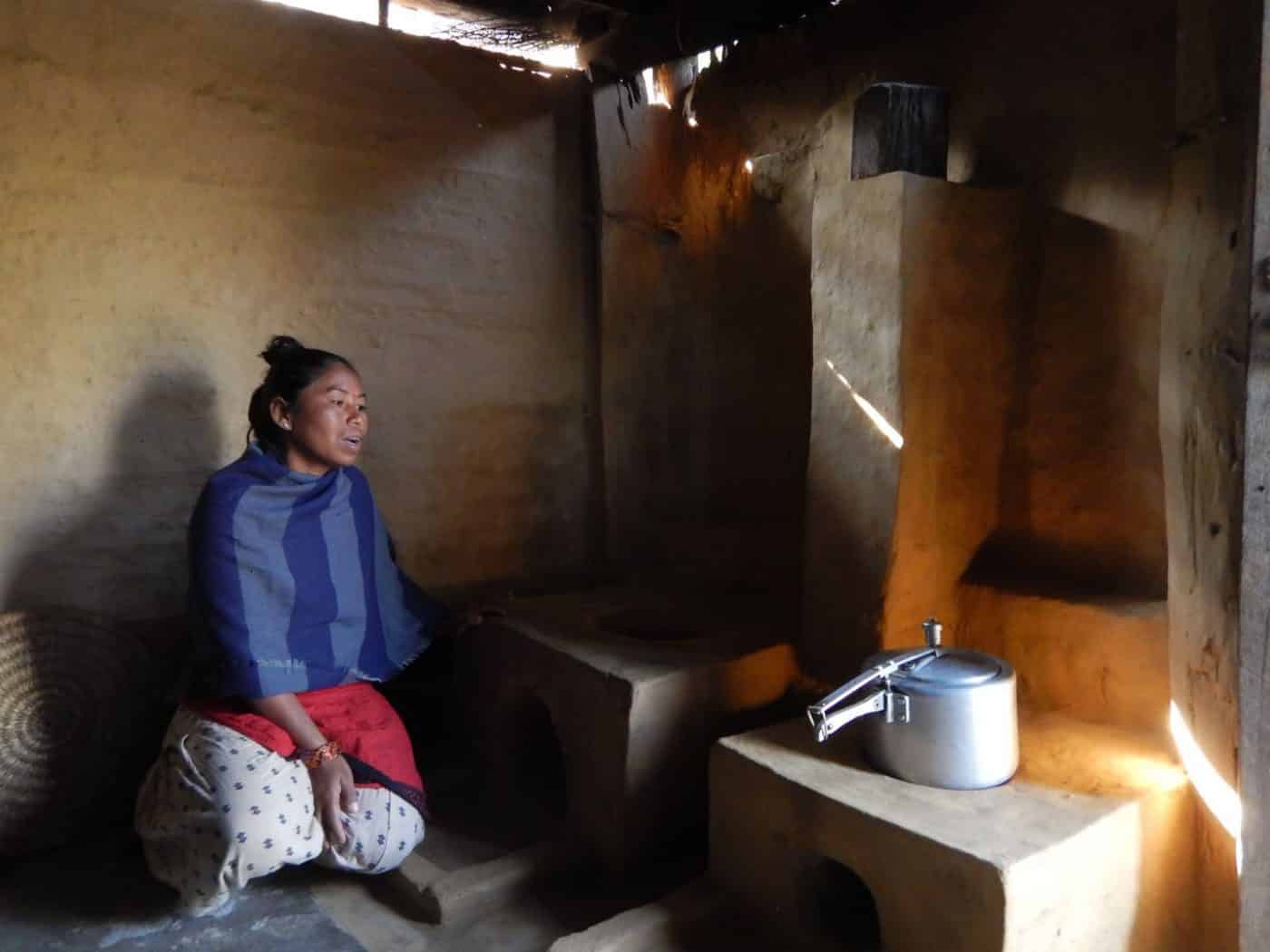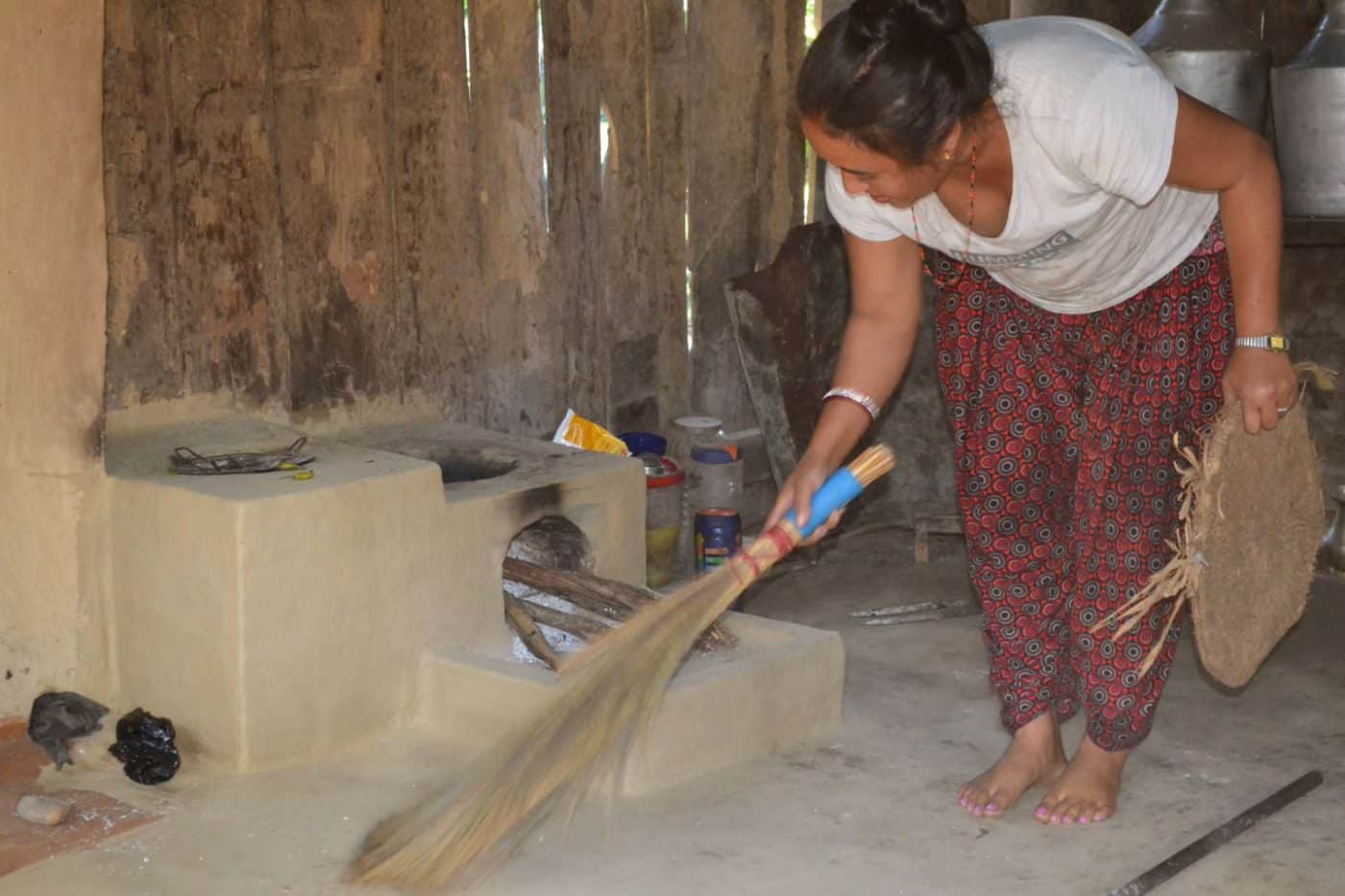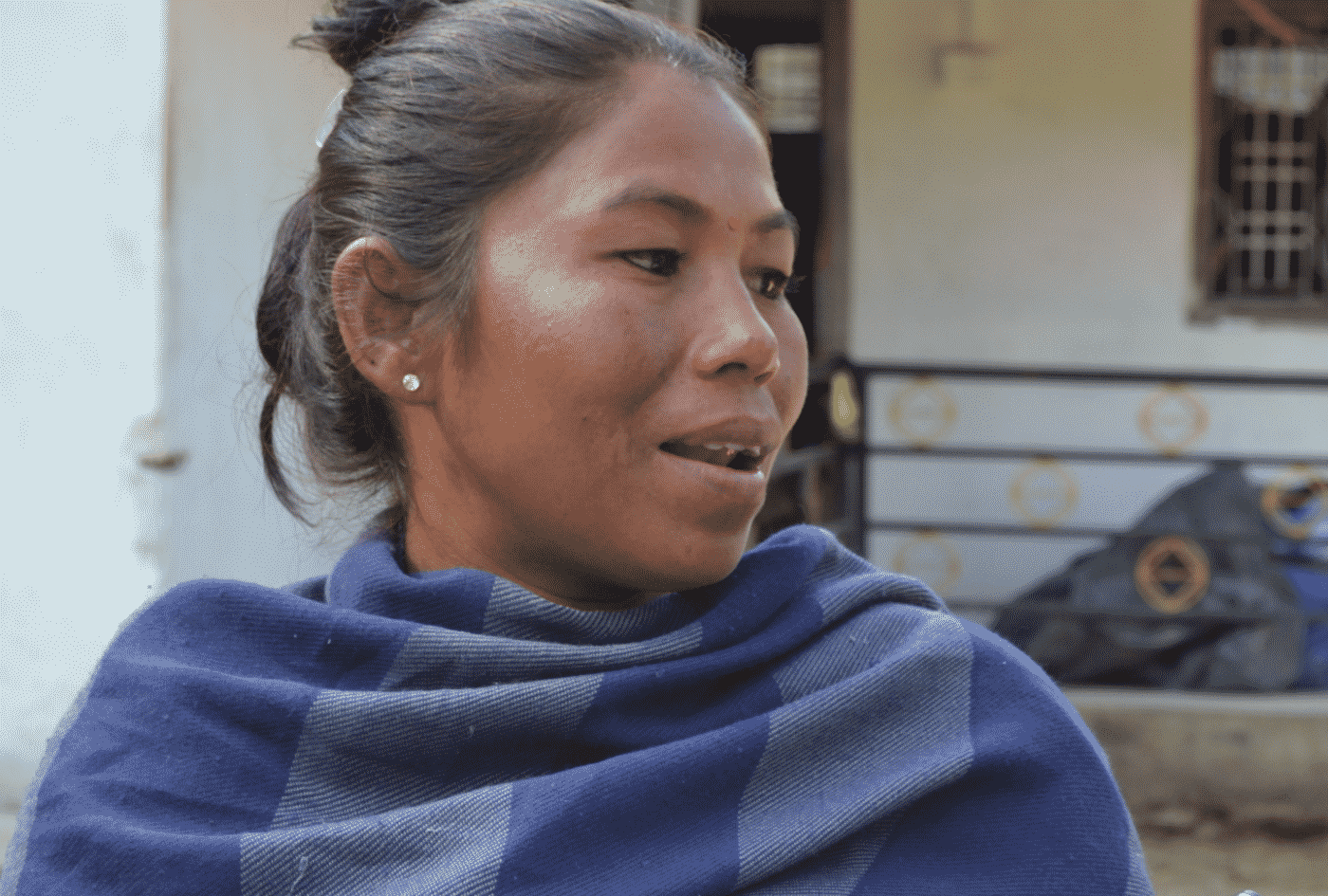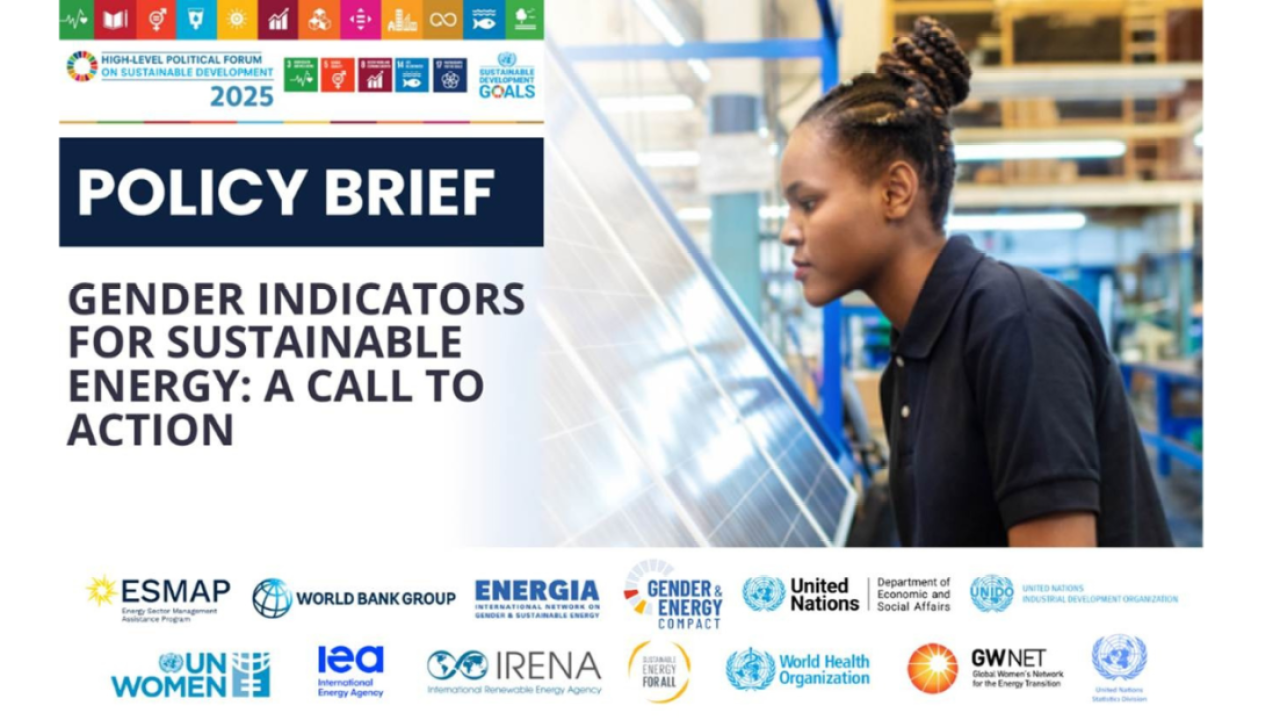Suku Maya Majhi is a women entrepreneur in Sindhuli, Nepal. She joined the ENERGIA and Centre for Rural Technology Nepal Women’s Economic Empowerment project to learn how to build improved cookstoves (ICS) in the houses in her community. She had a critical role in scaling up clean cooking facilities and raising awareness on the effects of indoor air pollution. As entrepreneur, she is contributing to deliver energy access to all and engage women in the energy sector.
Suku Maya Majhi is preparing the Nepali Dal Bath, with lentils and steamed rice in her new kitchen, equipped with an on-site built improved cookstove (ICS) which replaced the old traditional stove. “Until a few years ago, my house was smokey and the air unbreathable. My eyes were always irritated and my throat was hurting” confessed Suku, recalling the moment she decided to give up with using firewood. That changed when she joined ENERGIA and CRT-Nepal’s Women’s Economic Empowerment – Nepal project (WEE-Nepal) and learned about the multiple health risks of indoor air pollution.
Clean cookstoves can lead to a sustainable future
Like Suku Maya Majhi there are roughly 3 billion people worldwide, who rely on simple stoves fuelled by kerosene, biomass (wood, animal dung and crop waste) and coal. In the race to respect the Paris Agreement commitments on climate change and to achieve the Sustainable Development Goals on energy access and gender equality, clean cookstoves and fuels play a central role towards a more sustainable and cleaner environment. Besides the hazardous consequences on the community air quality, the lack of access to clean cooking solutions exposes people to dangerous indoor air pollutants, which cause non-communicable diseases including stroke, ischaemic heart disease, chronic obstructive pulmonary disease (COPD) and lung cancer, according to the World Health Organisation (WHO). The WHO also estimates that 4.6 million people die each year from causes attributable to air pollution and among them, around 3.8 million people die prematurely from illness attributable to the household air pollution caused by the inefficient use of solid fuels and kerosene for cooking. Moreover, there is consistent evidence that women and girls are the most affected by household air pollution, as they generally spend most of the time taking care of domestic work.

Suku Maya Majhi is changing her village behaviour one kitchen at a time
Something is changing in the small village in Sindhuli in Nepal, where Suku Maya is living with her family. During the first phase of the WEE-Nepal project, she attended a training to manufacture improved cook stoves (ICS) instead of traditional mud stoves. In the second phase, the WEE expert visited her to support her business. She personally experienced the positive impacts of cooking on an ICS, and this approach helped her to develop even more her potential as agent of change in the energy sector. Thanks to her role as household energy manager and energy entrepreneur, she is not only raising awareness of the benefits of clean cookstoves and fuels in her community, but she is in a unique position to interact with other peers and deliver energy products. Various research indicate, in fact, that women entrepreneurs are strong partners to access untapped female markets and reach “last mile” households. Moreover, they usually reinvest back into their communities, contributing to its development.
To meet the high demand of clean cookstoves and fulfil her daily tasks as woman, mother and wife, she wakes up very early and she successfully builds 3 to 4 stoves per day. “I’ve built more than 150 cookstoves in my community and in the surrounding villages. People usually prefer this option rather than mobile cookstoves, which are much more expensive.” Indeed, following Suku Maya’s directions, users usually produce the clay bricks needed to build the stove themselves, cutting back spending. Therefore, the cost is limited to Suku Maya’s wage and the chosen number of burners. Thanks to this affordable approach, almost everyone in the village has an on site built ICS and her business is rapidly spreading across other communities. “I am proud of my role, as I can see with my own eyes how people’s lives can benefit from ICS.”

Beyond environmental and health benefits, Suku Maya is now saving enough money to send both of her children to school and join her family in the household decision-making process. On the other side, her clients save time on cooking and have the opportunity to pursue economic or educational activities, spend more time with their children, enhance in turn their participation in energy development and rest – all of which contribute to poverty and gender gap reduction.
Related links: Household air pollution and health, WHO







